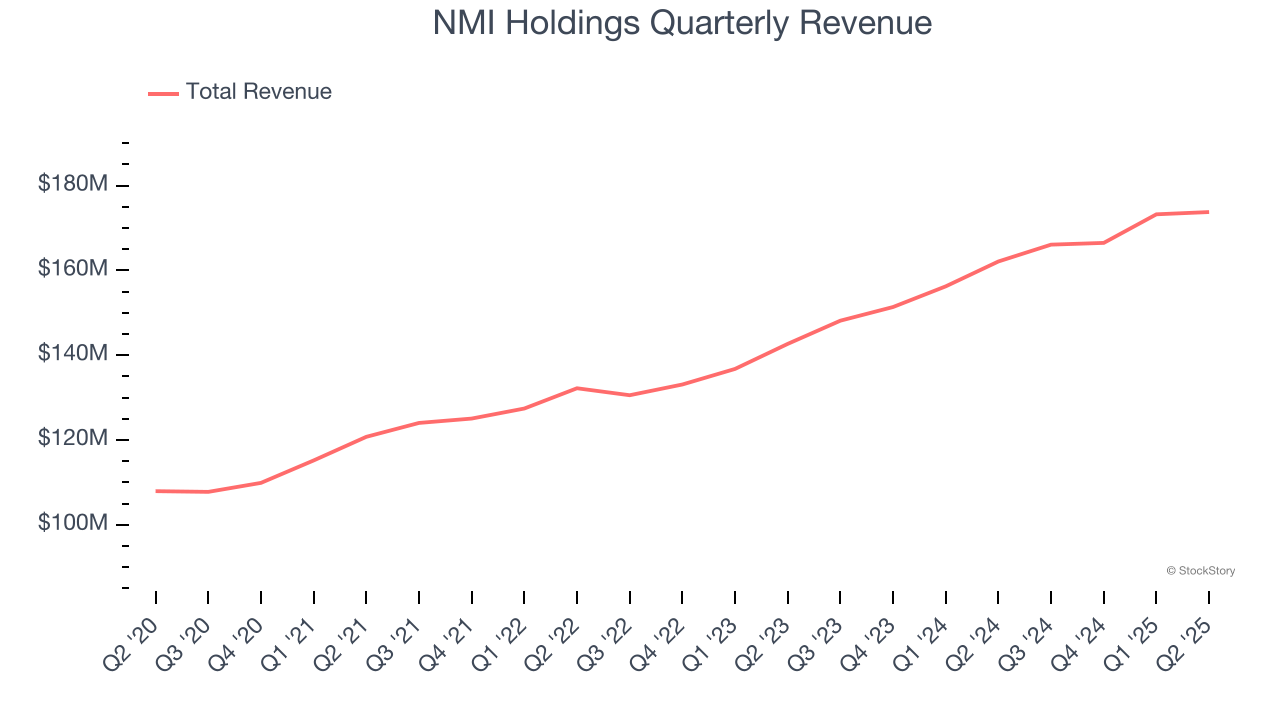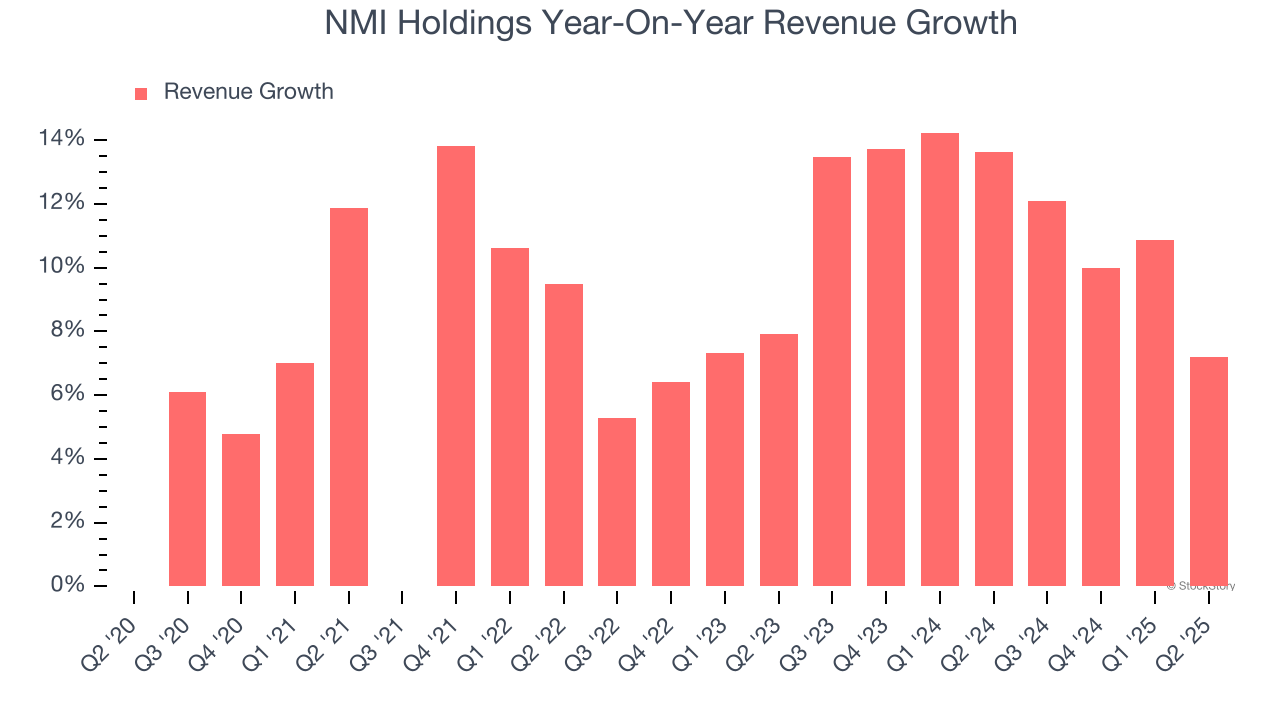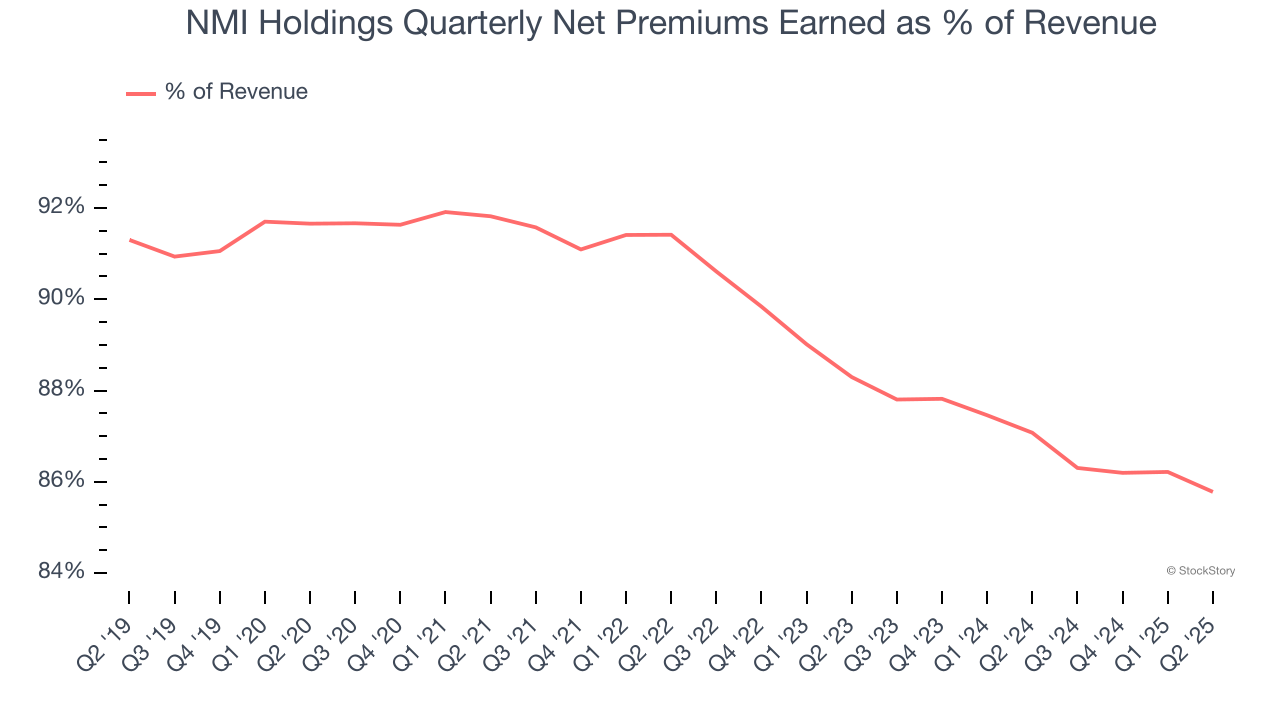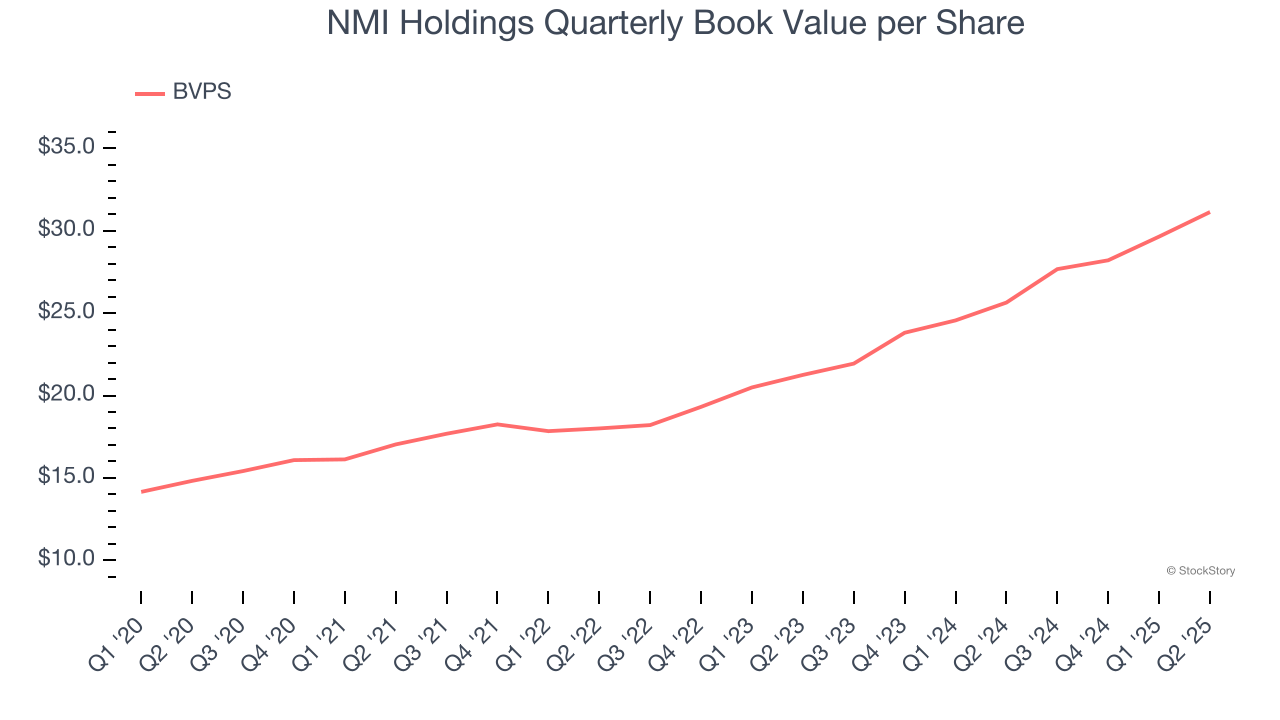
Mortgage insurance provider NMI Holdings (NASDAQ:NMIH) met Wall Street’s revenue expectations in Q2 CY2025, with sales up 7.2% year on year to $173.8 million. Its non-GAAP profit of $1.22 per share was 2.6% above analysts’ consensus estimates.
Is now the time to buy NMI Holdings? Find out by accessing our full research report, it’s free.
NMI Holdings (NMIH) Q2 CY2025 Highlights:
- Net Premiums Earned: $149.1 million (5.6% year-on-year growth)
- Revenue: $173.8 million vs analyst estimates of $174.4 million (7.2% year-on-year growth, in line)
- Combined Ratio: 28.8% (8.5 percentage point year-on-year decrease)
- Adjusted EPS: $1.22 vs analyst estimates of $1.19 (2.6% beat)
- Market Capitalization: $2.95 billion
Adam Pollitzer, President and Chief Executive Officer of National MI, said, “In the second quarter, we again delivered strong operating performance, continued growth in our high-quality insured portfolio, and standout financial results. We have a strong customer franchise, a talented team driving us forward every day, an exceptionally high-quality book covered by a comprehensive set of risk transfer solutions, and a robust balance sheet supported by the significant earnings power of our platform. Looking forward, we’re well positioned to continue delivering differentiated growth, returns and value for our shareholders.”
Company Overview
Founded in the aftermath of the 2008 housing crisis to bring new capacity to the mortgage insurance market, NMI Holdings (NASDAQ:NMIH) provides mortgage insurance that protects lenders against losses when homebuyers default on their mortgage loans.
Revenue Growth
Insurers earn revenue three ways. The core insurance business itself, often called underwriting and represented in the income statement as premiums earned, is one way. Investment income from investing the “float” (premiums collected upfront not yet paid out as claims) in assets such as fixed-income assets and equities is the second way. Fees from various sources such as policy administration, annuities, or other value-added services is the third.
Over the last five years, NMI Holdings grew its revenue at a solid 10% compounded annual growth rate. Its growth surpassed the average insurance company and shows its offerings resonate with customers, a great starting point for our analysis.

We at StockStory place the most emphasis on long-term growth, but within financials, a half-decade historical view may miss recent interest rate changes, market returns, and industry trends. NMI Holdings’s annualized revenue growth of 11.9% over the last two years is above its five-year trend, suggesting its demand was strong and recently accelerated.  Note: Quarters not shown were determined to be outliers, impacted by outsized investment gains/losses that are not indicative of the recurring fundamentals of the business.
Note: Quarters not shown were determined to be outliers, impacted by outsized investment gains/losses that are not indicative of the recurring fundamentals of the business.
This quarter, NMI Holdings grew its revenue by 7.2% year on year, and its $173.8 million of revenue was in line with Wall Street’s estimates.
Net premiums earned made up 88.9% of the company’s total revenue during the last five years, meaning NMI Holdings barely relies on non-insurance activities to drive its overall growth.

Net premiums earned commands greater market attention due to its reliability and consistency, whereas investment and fee income are often seen as more volatile revenue streams that fluctuate with market conditions.
Unless you’ve been living under a rock, it should be obvious by now that generative AI is going to have a huge impact on how large corporations do business. While Nvidia and AMD are trading close to all-time highs, we prefer a lesser-known (but still profitable) stock benefiting from the rise of AI. Click here to access our free report one of our favorites growth stories.
Book Value Per Share (BVPS)
Insurance companies are balance sheet businesses, collecting premiums upfront and paying out claims over time. The float–premiums collected but not yet paid out–are invested, creating an asset base supported by a liability structure. Book value per share (BVPS) captures this dynamic by measuring these assets (investment portfolio, cash, reinsurance recoverables) less liabilities (claim reserves, debt, future policy benefits). BVPS is essentially the residual value for shareholders.
We therefore consider BVPS very important to track for insurers and a metric that sheds light on business quality because it reflects long-term capital growth and is harder to manipulate than more commonly-used metrics like EPS.
NMI Holdings’s BVPS grew at an incredible 16% annual clip over the last five years. BVPS growth has also accelerated recently, growing by 21% annually over the last two years from $21.25 to $31.14 per share.

Key Takeaways from NMI Holdings’s Q2 Results
Revenue was in line with expectations, but EPS beat. Overall, this was a fine quarter without major surprises. The stock traded up 2% to $38.71 immediately after reporting.
So should you invest in NMI Holdings right now? What happened in the latest quarter matters, but not as much as longer-term business quality and valuation, when deciding whether to invest in this stock. We cover that in our actionable full research report which you can read here, it’s free.
